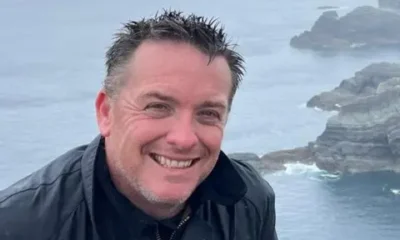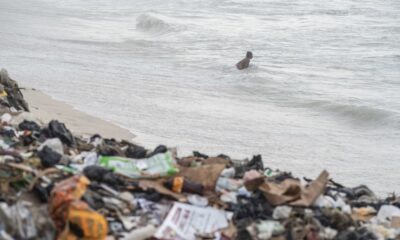Environment
America’s blame game over Canada’s wildfire smoke misses the point, experts say
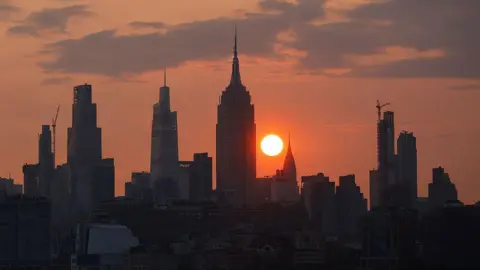
Read more on post.
Nadine YousifSenior Canada reporter
As deadly wildfires raged in the Canadian province of Manitoba this summer, Republican lawmakers in nearby US states penned letters asking that Canada be held accountable for the smoke drifting south.
“Our skies are being choked by wildfire smoke we didn’t start and can’t control,” wrote Calvin Callahan, a Republican state representative from Wisconsin, in a letter dated early August.
Callahan, along with lawmakers from Iowa, Minnesota and North Dakota, filed a formal complaint with the US Environmental Protection Agency (EPA) urging an investigation into Canada’s wildfire management.
Manitoba premier Wab Kinew quickly condemned the move, accusing the lawmakers of throwing a “timber tantrum” and playing “political games”.
By August, the wildfires had scorched more than two million acres in Manitoba, forced thousands to evacuate, and killed two people – a married couple who authorities said were trapped by fast-moving flames around their family home.
As September draws to a close, data shows that 2025 is on track to be Canada’s second-worst wildfire season on record.
A study published in the Nature journal in September has revealed that smoke from Canada’s wildfires has also had far-reaching, fatal consequences. It estimates that the 2023 wildfires – the country’s worst on record by area burned – caused more than 87,500 acute and premature deaths worldwide, including 4,100 acute, smoke-related deaths in the US and over 22,000 premature deaths in Europe.
Wildfire smoke contains PM2.5 – a type of air pollution – that is known to trigger inflammation in the body. It can exacerbate conditions like asthma and heart disease, and, in some causes, can damage neural connections in the brain.
“These are big numbers,” said Michael Brauer, a professor at the University of British Columbia who co-authored the study. He added the findings show wildfire smoke should be treated as a serious health issue, akin to breast cancer or prostate cancer.
For some American lawmakers, the blame falls squarely on Canada.
“Canada’s failure to contain massive wildfires,” Callahan wrote in August, “has harmed the health and quality of life of more than 20 million Americans in the Midwest.”
Their complaints raise the question: Could Canada be doing more to curb its wildfires – and by extension, their smoke?
Climate and fire experts in both countries told the BBC that the answer is largely no.
“Until we as a global society deal with human-cased climate change, we’re going to have this problem,” said Mike Flannigan, an emergency management and fire science expert at Thompson Rivers University in British Columbia.
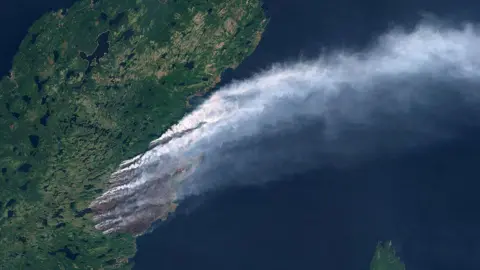 Gallo Images/Orbital Horizon/Copernicus Sentinel Data 2025
Gallo Images/Orbital Horizon/Copernicus Sentinel Data 2025Metrics show Canada’s wildfires, a natural part of its vast boreal forest, have worsened in recent years. Fire season now starts earlier, ends later, and burns more land on average. The 2023 fires razed 15 million hectares (37 million acres) – an area larger than England – while the 2025 blazes have so far burned 8.7 million hectares (21.5 million acres).
As of mid-September, there are still more than 500 fires burning, mostly in British Columbia and Manitoba, according to the Canadian Interagency Forest Fire Centre.
Roughly half of Canada’s wildfires are sparked by lightning, while the rest stem from human activity, data from the National Forestry Database shows. Experts warn that hotter temperatures are making the land drier and more prone to ignition.
Wildfires are not only worsening in Canada. The US has recently seen some of its most damaging blazes, including the 2023 Hawaii wildfires that killed at least 102 people, and the Palisades fire in January, the most destructive in Los Angeles history.
Both countries have struggled to keep pace, often sharing firefighting resources. Canadian water bombers were deployed in California this year, while more than 600 US firefighters travelled north to assist Canada, according to the US Forest Service.
In Canada, strained resources – and worsening fires – have fuelled calls for a national firefighting service. Wildfire emergency response is currently handled separately by each of the provinces and territories.
“The system we have right now worked 40 years ago. Today? Not so much,” argued Mr Flannigan.
Others propose controlled burns, a practice used in Australia and by indigenous communities, as a solution, though these fires would still generate smoke. Some argue for better clearing of flammable material in forests and near towns, or investing in new technology that can help detect wildfires faster.
Some of that work is already underway. In August, Canada pledged more than $47m for research projects to help communities better prepare for and mitigate wildfires.
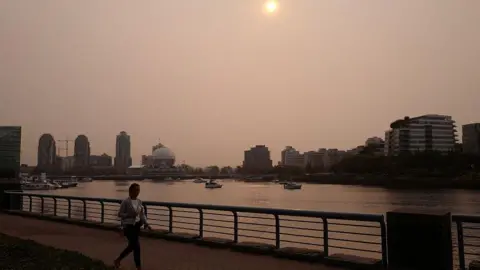 Getty Images
Getty ImagesStill, experts like Jen Beverly, a wildland fire professor at the University of Alberta, warn there is little Canada can do to prevent wildfires altogether.
“These are high intensity fire ecosystems” in Canada, she said, that are different from fires in Australia or the US. “We have very difficult fires to manage under extreme conditions, and we’re seeing more of those because of climate change.”
With a warmer climate, Prof Beverly said attention should be paid to pollution. She noted that the US is the second-worst carbon emitter in the world behind China. “I mean, we should be blaming them for the problem,” she argued.
In recent months, the Trump administration has also rolled back environmental policies designed to reduce emissions, and has withdrawn the US from the Paris climate accords.
Sheila Olmstead, an enviromental policy professor at Cornell University, noted that Canada and the US have a history of cooperation on pollution and climate, including an air quality agreement signed by the two in 1991 to address acid rain.
“It was a very clear framework for addressing the problem, and that’s what seems to be missing here,” Olmstead told the BBC. Both countries, she said, would benefit from working together on wildfires instead of trading blame.
As for the EPA complaint, it is unclear what the agency could do to address the US lawmakers’ concerns. In a statement to the BBC, the EPA said it is reviewing it “and will respond through appropriate channels”.
Prof Brauer said the data in his study shows that even though the fires are burning in Canada – often in remote areas – their impact can reach far beyond.
The findings, he told the BBC, call for a re-framing of how the consequences of climate change are understood.
“The effects of a warmer climate are localised, and there are winners and losers,” Prof Brauer said. “But this is an illustration that some of these impacts are becoming global.”
He argued that the US lawmakers’ complaints are an “unfortunate distraction,” and that the focus should instead be on collaboration and learning how to “live with smoke”.
“This stuff isn’t going away,” Prof Brauer said, adding that there are ways to prevent future deaths if there is a will to adapt.
Environment
Environment Agency failed to visit serious pollution incidents, files show
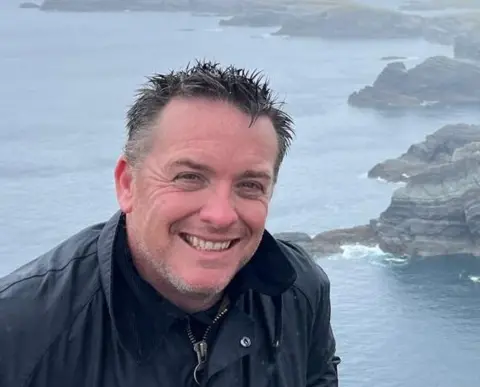
Read more on post.
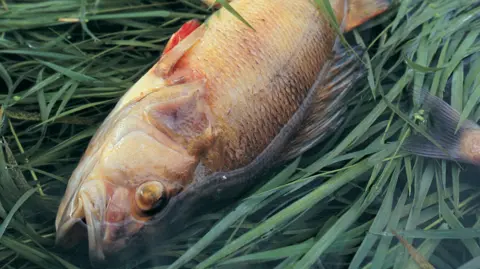 Getty Images
Getty ImagesDocuments and data shared with BBC News from inside England’s much criticised environment watchdog show an agency struggling to monitor incidents of serious pollution.
The information shows the Environment Agency (EA) only sent investigators to a small fraction of reported incidents last year and often relied on water companies – who may be responsible for the pollution – for updates.
An internal EA document from this year states that all potentially serious incidents should be attended by staff.
But in 2024, the EA didn’t go to almost a third of nearly 100 water industry incidents that were eventually ruled to have posed a serious threat to nature or human health.
The agency also downgraded the environmental impact of more than 1,000 incidents that it initially decided were potentially serious without sending anyone to take a look.
The EA says it does “respond” to all incidents but has ways to assess pollution that don’t involve going in person. It says when reports come in it is “careful not to underestimate the seriousness of an incident report”.
But the EA insider who provided the BBC with the data was critical of the agency. “What not attending means is that you are you are basically only dealing with water company evidence. And it’s very rare that their own evidence is very damning,” the insider said.
Among the incident reports shared with the BBC were an occasion when a chemical spilled into a reservoir killing all its fish and which the EA did not attend. Another time, sewage bubbled up into a garden for more than 24 hours with no deployment from the EA.
The BBC is not printing specific details from the reports to protect the identity of the whistleblower. But they show an agency often slow to respond and frequently copying water company updates into EA documents verbatim before downgrading incidents.
Other documents show pollution incidents that were reported to the EA by water companies hours after the problem had already been solved, making the impact much harder to assess as the evidence may have washed away.
The data show that overall the agency went to just 13% of all the pollution incidents, serious and more limited, that were reported to it in 2024.
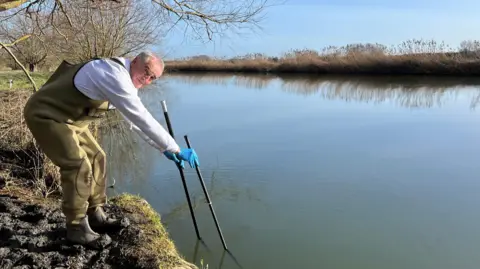 Jonah Fisher/BBC
Jonah Fisher/BBC“It’s virtually impossible to get them to come out,” Ashley Smith a veteran water quality campaigner from the Oxfordshire based campaign group Windrush Against Sewage Pollution (WASP) told the BBC.
“(When you call the EA) they go through a scenario where they’ll say ‘are there any dead fish’. And, typically there are not dead fish because often the fish are able to escape.
“The EA then says – we’ll report that to Thames Water – and it will be Thames Water if anyone who gets in touch with you.”
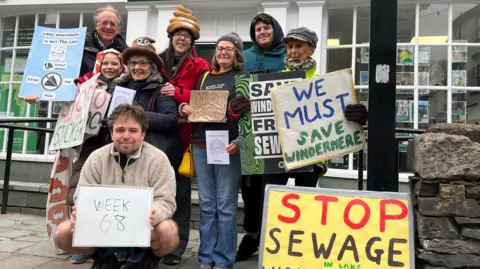 Jonah Fisher/BBC
Jonah Fisher/BBCMatt Staniek is a water quality campaigner in the Lake District and cited several incidents where he says the EA took explanations from the local water company about sewage spills at face value, which later through his own data requests were proved wrong.
“The Environment Agency has not been holding United Utilities accountable,” he says. “And the only way that we get them to properly turn up to pollution incidents and now actually try and do a proper investigation is by going to the media with it, and that should not be the case.”
A United Utilities spokesperson responded saying “we are industry leading at self-reporting incidents to the Environment Agency”.
As part of the government’s landmark review of water industry regulation it has promised to end “self reporting” of incidents by water companies.
There is widespread agreement that the current system is not working and plans are being drawn up to merge the regulators – including the EA – which oversee different parts of the water industry – into just one.
“The Environment Agency is so hollowed out that it cannot investigate pollution crimes, effectively telling polluters they can act with impunity,” James Wallace, the chief executive of campaign group River Action, told the BBC.
In July the BBC revealed that staff shortages had led to the EA cancelling thousands of water quality tests at its main laboratory in Devon.
“We respond to every water pollution incident report we receive,” an Environment Agency spokesperson said.
“To make sure we protect people and the environment, we are careful not to underestimate the seriousness of an incident report when it comes in. Final incident categorisations may change when further information comes to light. This is all part of our standard working practice.”
Environment
China, world’s largest carbon polluting nation, announces new climate goal to cut emissions
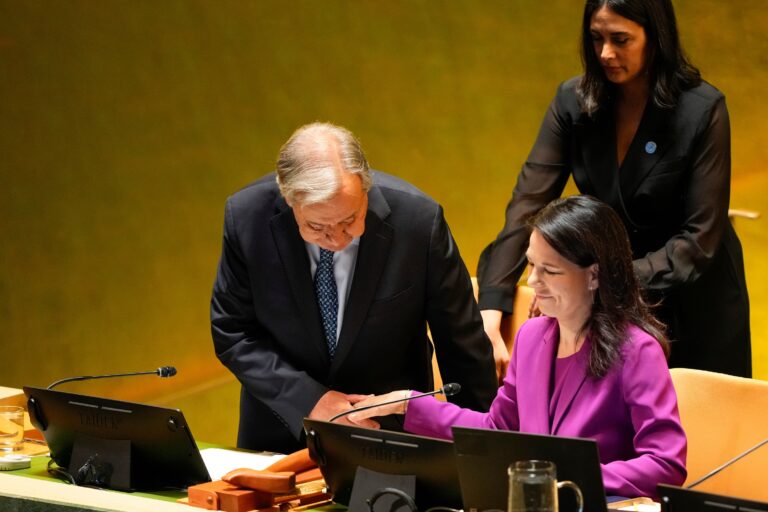
This post was originally published on this site.
Environment
Indigenous women in Peru use technology to protect Amazon forests
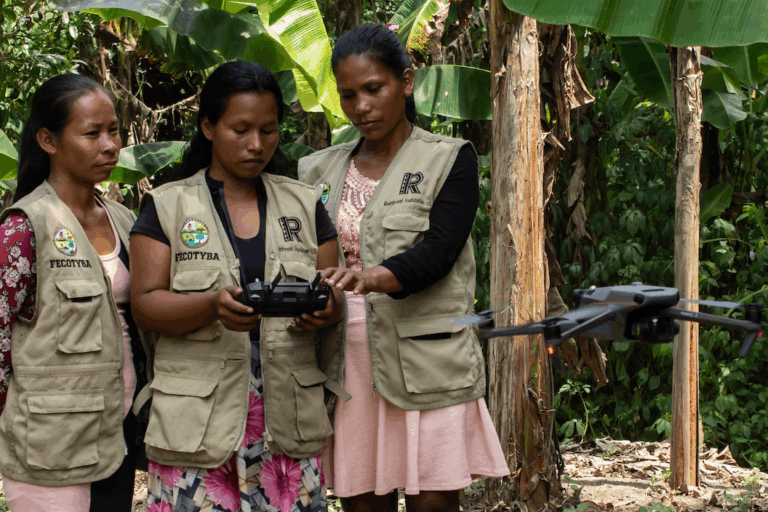
This post was originally published on this site.
-
Culture2 days ago
Taylor Swift’s new cinema outing generates more than €12million in just 24 hours
-
Politics2 days ago
European Parliament snubs Orbán with vote to shield Italian MEP from Hungarian arrest
-
Culture2 days ago
Milan Fashion Week 2025: Unmissable shows and Giorgio Armani in mind
-
Opinion2 days ago
Fintan O’Toole: How can you live with the knowledge that you have facilitated mass murder?
-
Culture3 days ago
Marvel stars Mark Ruffalo and Pedro Pascal stand up for Jimmy Kimmel as Disney boycott intensifies
-
Health3 days ago
EU renews support for WHO’s Universal Health Coverage Partnership
-
Opinion2 days ago
AI Is Pointless If It Doesn’t Boost Productivity
-
Environment1 week ago
Chimps drinking a lager a day in ripe fruit, study finds



